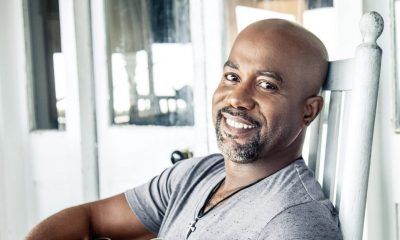Interviews
Interview with Randy Houser, Singer of “Anything Goes”
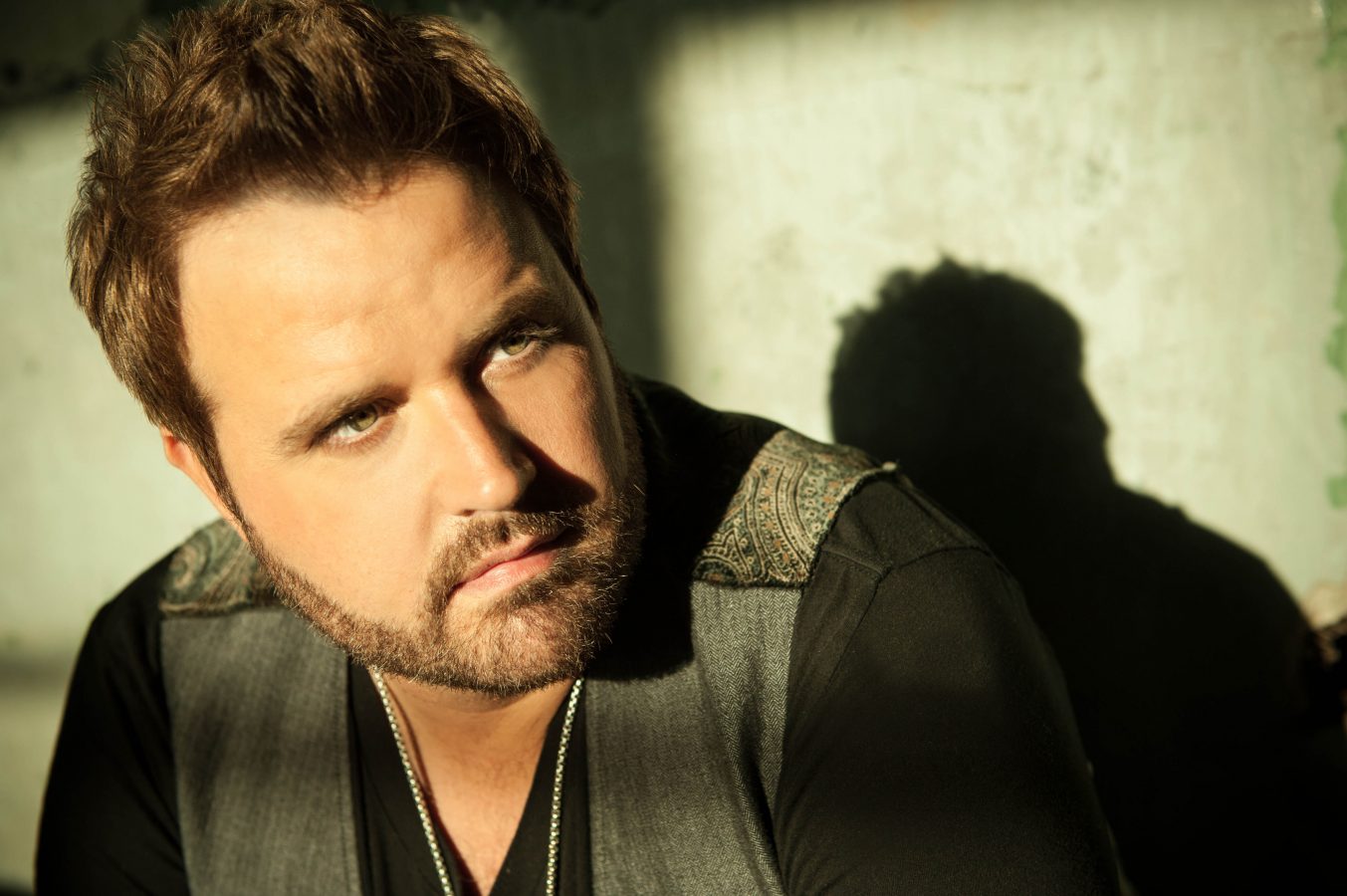
Randy Houser’s debut album Anything Goes is a project, says the Mississippi native, that he’s been working on his whole life–or at least since he first picked up a guitar at the age of five. It is, in that sense, a culmination of the experiences–good, hard, and spiritual–that have brought him to where he stands today; riding the wave of a top 20 single to country music notoriety.
In this exclusive interview, I asked Houser about the album, about a recording trip to the Bahamas, and, of course, about a particularly infamous Trace Adkins song.
JIM MALEC: You co-wrote “Honky Tonk Badonkadonk,” as well as Justin Moore’s “Back That Thing Up.” Let me just ask you one question about that: Why?
RANDY HOUSER: Did you say why?
JM: That’s what I said.
RH: You know what, I think there are different sets of country listeners. You have the country listeners that are more homebodies and have families, and that’s what they do. But there’s a whole other side of country music that doesn’t need to be forgotten about, and those are the people that like to have fun. I think it’s important to give them those fun songs.
And, also, as a songwriter, purely from a songwriting standpoint, we have to make a livin’. Those songs were before I was an artist, and those songs are not necessarily what I would put out as an artist. But that’s how I made a livin’.
JM: Are you proud of those songs?
RH: I’m very proud of ‘em. I think they were written, even being silly songs like they are, I think they were written well for what they are.
JM: Just to clear up any confusion, “Back That Thing Up” is about a tractor, right?
RH: Oh yeah—absolutely. If you hear the song you’ll clearly know that it’s about a tractor.
JM: That’s what I thought, but I just wanted to be sure. Now, you co-wrote “Badonkadonk” with Jamey Johnson, so you’ve obviously had a chance to spend some time with him. I’m curious–is Jamey Johnson as crazy as I think he is?
RH: I think that’s almost a misconception. Jamey’s got a crazy look in his eye, but he’s not crazy. He’s one of the best dudes ever. He’s one of my best buddies. You know, he’s probably as close as I have to a brother. I don’t think he’s crazy at all. I think he’s brilliant. And I think sometimes people are confused by that, because the guy, he’s probably thinkin’ something a little different than you are. It doesn’t…
Well, hell, we’re all crazy. We’re songwriters.
JM: Were you at the CMA Awards Wednesday night?
RH: Yeah, I was there.
JM: What did you think of the show?
RH: I thought it was good. I thought there were some really good performances. For the most part, everybody was on key. For the most part. And I thought Brad and Carrie did a great job, and some of the writing on the hosting stuff was really good. Overall I felt it was a pretty good show.
JM: You and your single “Anything Goes” seem to have come out of nowhere. You weren’t on anybody’s radar at the start of 2008. Then, not too long ago, I was looking at the MediaBase charts and your song was sitting there in the top 20. And I actually did a double take when I saw that. “Anything Goes” came out in May, if I remember correctly, so you’re not exactly an overnight success. Was it just a matter of sticking with this until it took off? Tell me about the single and how things have come together for you.
RH: We found that song right at the end of recording this album. Most people expected me to write the whole record, but when I heard that song it just affected me. I thought it was somethin’ that a lot of people have lived through. It was definitely somethin’ that I had been through in life.
When I recorded it, I knew it wasn’t gonna be an easy sell. I knew that subject matter about drinkin’ and havin’ one night stands is a little hard for some people to deal with. But guess what—it’s real life. It’s stuff that a lot of people have been through.
We knew, as a single, it was gonna be a tough sell. But my label has put together a real good promotion team, and they’ve been real cool with me about letting me be able to come out and make a statement like that and sing a country song like that. And they’ve stuck by me and waited for it to go up the charts, rather than puttin’ out a ditty for a first single.
I would rather spend the time that it takes to get somethin’ like this goin’, something’ that’s got a lot less chance of being a hit. I’d rather spend the time on that and make a mark as an artist, and at least say somethin’ for a first single, rather than just give you ear candy.
JM: “Anything Goes” does feature subject matter that we don’t hear a lot about on country radio these days, and I want to ask you about that, because there’s a song on the record, a very powerful song, called “Back to God.” It’s a song that’s wedged between a lot of tough, some might say rowdy, lyrical themes—along with “Anything Goes,” for example, there’s a song on the record that is about lying to pick up chicks. Do you consider yourself a spiritual person? And how do you reconcile the somewhat conflicting messages that sometimes crop up in your music?
RH: I am a spiritual person, but I think there’s a complete difference between being spiritual and being religious. The song “Back to God” is about drawing a line for yourself. For me, it’s about looking at what we’re going through today and makin’ sure that I can see the lines not to cross, that I know when to pull the reins back as a person and feel ok with what’s goin’ on. The song’s not meant to be a religious thing. It’s more about making you think about lovin’ other people and respecting people, and helping other people out who are in need.
And it’s about not necessarily goin’ to fists every time somebody says something bad. You know what I mean? Kind of like what we’re doin’ with our war, and things like that. Sometimes the bigger man turns the other cheek. For me, it’s not about religion, it’s more about love.
I can’t say that some of those things I write about are wrong, ‘cause I don’t feel like they are. The things that you’re talking about, like being in a bar or all that. “Back to God” is more about love and about that kind of fellowship than it is so much “Go get on your knees.” Although prayin’ is a spiritual thing to me, and I think if you’re in those situations where you feel like you’ve gone too far, or are doin’ something wrong, you better know that you can hit your knees and pray.
JM: Let’s talk about the album. Produced by Mark Wright, I would describe it as a sort of contemporary Honky Tonk record that shows the singer’s sensitive side. Is that a fair description, or did I miss the mark?
RH: Yeah, I’d say that’s right. I mean, the record spans a time period basically from me being a kid on up ‘till now. And the reason you talk about conflicting messages and things like that is because I’ve had changes in opinion over the years, and written songs over the years that definitely conflict each other, just because I’ve gone through different things in life. And this album represents different times in my life. It’s not a small time period album, something that came together over the course of a year. It represents a lot of growin’. Spiritually, it represents a lot of times when I was down in the dumps, a lot of times when I didn’t know who I was.
I think this album represents different sides of all that. There are some sensitive spots in my life that I wasn’t scared to write about. There’s definitely some Honky Tonk stuff on there, and there’s definitely some sensitive issues on there.
JM: When did you finish recording Anything Goes, and how long had you been working on it?
RH: We started recording the album last year around this time, and worked on it until about March.
JM: What would you say was the most unexpected thing that happened to you while you were in the studio?
RH: Finding the single was the most unexpected thing. I had heard the song, and wanted the song really bad. But somebody in Tim McGraw’s camp had it on hold. On the last day of recording, we got a call in the studio that the song had become available, which was a blessing.
JM: Paul King mentioned in a recent write-up for NashvilleHype! that prior to your work on “Anything Goes,” you went to Bermuda to record an album. What was the story with that?
RH: No, it was the Bahamas.
JM: Ah, the Bahamas. That’s quaint.
RH: Just before I was here at Universal South, I was signed over at MCA. James Stroud signed me to a record deal at MCA. He left the label, and when he did they kinda blew me out the door, too. We recorded the album there but never finished. We never mixed it.
JM: So, why did you go to the Bahamas to record that album?
RH: It sounded like a good idea to me.
JM: I can’t argue with that logic. uMusic tells me you’re going on the road next week, and I know the album comes out on Tuesday. And are you nervous about release day?
RH: I am nervous about it. I’m excited about it, too. It’s a big deal, you know, when I think about startin’ to play guitar at five years old. I didn’t get into music for makin’ money or for girls, ‘cause I didn’t know what either one of ‘em was when I started makin’ music. And then, after all the years of playin’ bars and writing songs, to finally get to put out a piece of music that everybody who wants to hear gets a chance to hear…it’s a pretty special thing. It’s exciting. It’s scary, too.
Everybody has opinions of albums and all that stuff, and I think all that’s warranted. I just, you know, hope people like it. I think people, a lot of times, dig in real deep with something and try to twist it into somethin’ it’s not supposed to be. All of that excites me and scares me at the same time.
JM: You were on Letterman recently. That’s a pretty big deal for a generally unknown country act, isn’t it?
RH: Yeah, that was crazy, man. From what I hear it’s really tough for artists to be on there in the first place. The crazy thing about that was that I didn’t even have a song in the top 40 yet, whenever I got booked for that show. And not only that, I’d never had one in the top 40! So I really didn’t understand why I was goin’ there, you know. The fact that Dave actually heard the song on the radio and asked me to be a part of the show, it made it so much sweeter.
And I would have, probably, knowing all the artists that have worked their butts off and never get that opportunity, I would have honestly felt guilty had someone on my team gone and just begged to have me on there because they had a connection or something like that. That would have been pretty bittersweet, you know what I mean? But I felt OK about it being that he actually requested me himself.
Honestly, the funny part was that I really thought they were playin’ a joke on me. I got an email from my manager, who is always playin’ jokes of some kind. He sent an email saying that I was confirmed for the show—and that’s all I got. Just this email that said, “You’re confirmed for David Letterman on blah blah blah.” And I went ‘bull shit’, you know? I knew he was tryin’ to mess with me. So I called the label and they confirmed it, and I was like, what? Why? I didn’t understand it. It was crazy, man. It was exciting, and, I don’t even know. I still haven’t been able to process it very well. It was just crazy.
JM: What is country music?
RH: Country music is truth. Of all genres of music, country music is the one that’s not so much about the beat as it is about hittin’ you right where it hurts the most in your heart and in your gut. Sometimes it hurts and sometimes it feels good. Sometimes it makes you laugh or cry or whatever, but I think it’s the last genre of music that’s all about a man telling you what he’s been through and where he’s been. And the truth.
- Lists13 years ago
Top 10 Country Music Albums of 2010
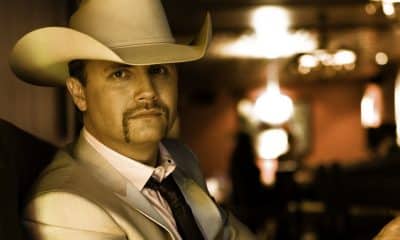
 Interviews5 years ago
Interviews5 years agoJohn Rich – The Interview

 Song Reviews16 years ago
Song Reviews16 years agoTaylor Swift – “Love Story”

 Interviews5 years ago
Interviews5 years agoHoneyhoney on Hiatus: Revisit our 2008 Interview with Suzanne Santo
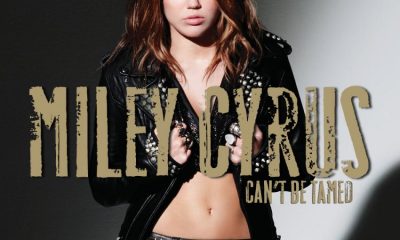
 Album Reviews14 years ago
Album Reviews14 years agoAlbum Review: Miley Cyrus – Can’t Be Tamed

 Song Reviews6 years ago
Song Reviews6 years agoThe Band Perry – “Hip To My Heart”

 Columns5 years ago
Columns5 years agoThe Link Between Folk Music’s Past and Present
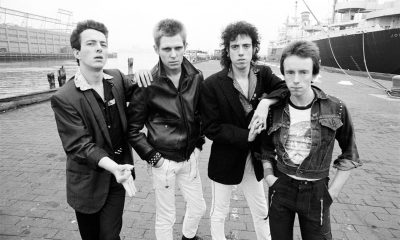
 Columns5 years ago
Columns5 years agoIs Marketing Killing Rock and Roll?






